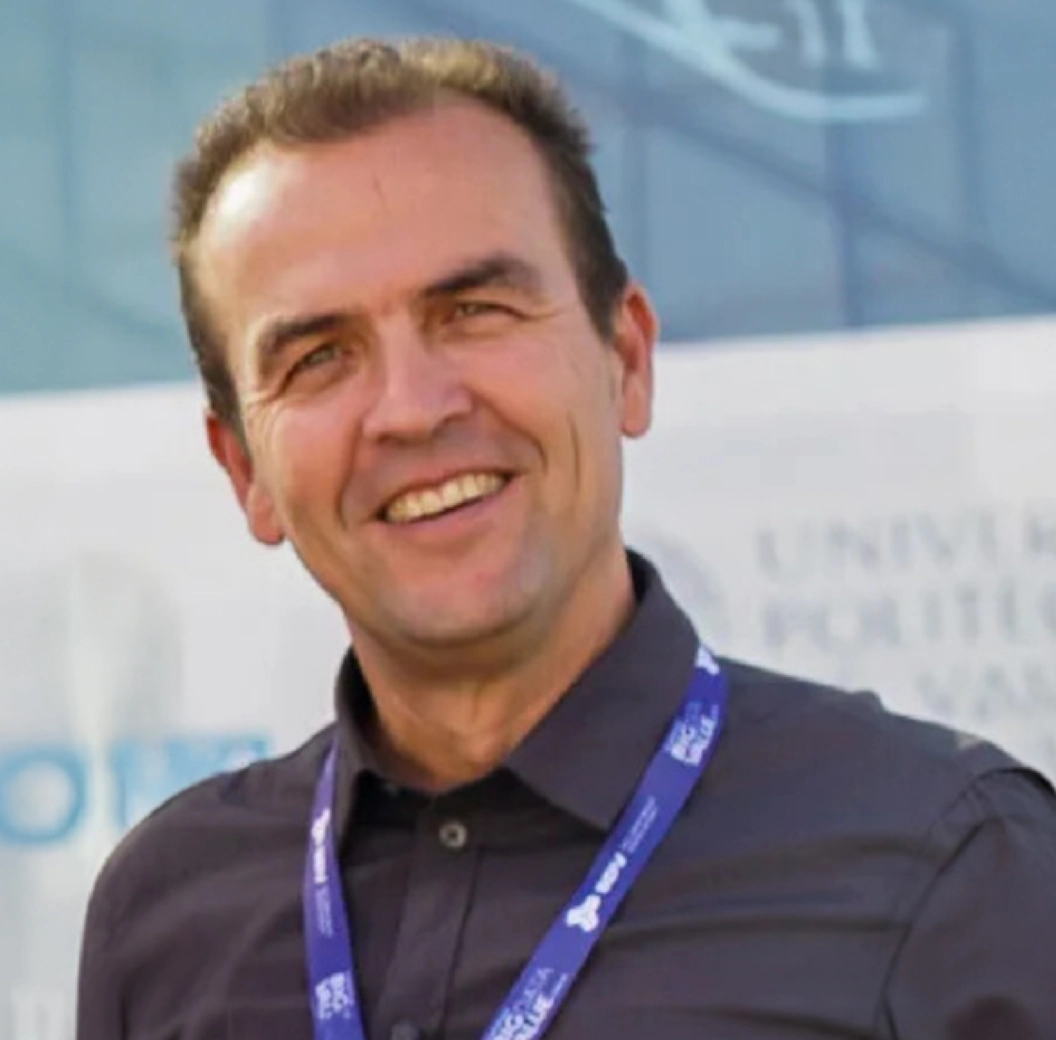Advisory Board
Industrial and Ethics Advisory Board
The Team
Houssem Chatbri is a Director of AI at the Bank of New York (BNY) and he is a member of the global AI Hub team. He leads the Responsible AI R&D Unit out from Dublin, and his work consists of building capabilities to ensure that AI is used safely and in compliance with regulations while solving different business use cases across BNY. He is also active in collaborations with Irish universities and the Industrial Development Agency (IDA) in Ireland that supports his team’s R&D activities. Prior to his work at BNY, Houssem worked as a Postdoctoral Researcher and IRC Fellow at the Insight Centre for Data Analytics at DCU. Then, he moved to the industry and took different roles in applied AI areas including computer vision for security and video moderation, healthcare and health insurance, document digitalization and understanding, and other areas of pattern recognition, image and video analytics. Houssem holds a PhD in computer science from the University of Tsukuba in Japan in 2016, and he was a visiting scientist to Rochester Institute of Technology (RIT) in New York US and to University of New England in Australia during 2014 and 2015. He has published more than 20 papers in AI/ML and he holds 4 patents.
With background on telecommunications and ICT technologies and more than 25 years of professional experience dedicated to both research, innovation and industry on these fields, during the last years I have been involved in most relevant regional and European technology innovation ecosystems, participating in forums and discussions, co-organizing strategic activities and events, contributing to Strategic Research and Innovation Agendas, leading working groups and coordinating strategic projects. From April 2023, I am working at Big Data Value Association (BDVA) as Senior Technical Lead Big Data and AI ecosystems, focused on (i) leading the activities to generate relevant outcomes in relation to Data Spaces, Big Data Value technologies and industrial AI, (ii) supporting the development of strategic agendas, roadmaps, reports, architectures, frameworks, methodologies, standards, and paths for technology adoption, value creation and market uptake, and (iii) engaging with stakeholder networks at International, European, National and Regional level.
Computer Science (Ph.D. in Computer Science from Technische Universität München in 1989). Philosophy (Ph.D. in Philosophy of Science and Technology from Technische Universität München in 2013, advisor Klaus Mainzer). Wide-ranging experience in computer science and as technical strategy advisor. I profit from my work both in academia and industry. Interdisciplinary work on the foundations and effects of culture changing information technologies since the 1990s. Focus on Machine Learning and AI in general since 2017: presentations at conferences in Japan, Germany, Poland, the Czech Republic and the USA. Focus on Smart Contracts and Distributed Autonomous Organizations since 2017: presentations at conferences in Canada, Italy, Sweden, and Germany. Current research interests include Big Data, Machine Learning and AI in general, autonomy and control in socio-technical systems, emergence and chance in agent-based simulation as well as trust in blockchain-based environments.

Florian Möslein is Director of the Institute for Law and Regulation of Digitalisation (www.irdi.institute) and Professor of Law at the Philipps-University Marburg, where he teaches Contract Law, Company Law and Capital Markets Law. He previously held academic positions at the Universities of Berlin, St. Gallen, and Bremen, and visiting fellowships in Italy (Florence, European University Institute), the US (NYU, Stanford and Berkeley), Australia (University of Sydney), Spain (CEU San Pablo, Madrid) and Denmark (Aarhus). Having graduated from the Faculty of Law in Munich, he also holds academic degrees from the University of Paris-Assas (licence en droit) and London (LL.M. in International Business Law). Florian Möslein published three monographs and over 80 articles and book contributions, and has edited seven books. His current research focus is on regulatory theory, corporate sustainability and the legal challenges of the digital age.

Martina Simon
Group leader, research in the field of human acceptance of technology
As part of the Human-Centered Innovation group, Martina Simon seeks to understand how technology influences human behavior and everyday life. Her research explores how insights from behavioral psychology and economics can be leveraged to develop technological solutions that are not only functional but also intuitive and easily accessible—ensuring optimal support for users in their daily lives. Her main research interests include analyzing user behavior and experience, as well as studying the conditions under which people accept new, particularly AI-based technologies. A key focus lies in the user-centered development and evaluation of technological solutions, considering socio-ethical aspects. Another central area of her research is the implementation of AI-based solutions across various work and life domains. She investigates how these technologies can be successfully integrated into professional and personal contexts, the challenges they pose, and their individual, organizational, and societal implications.
Hassan Hamadi is a PhD student at Lund University School of Economics and Management, currently based in Lund, Sweden. His research focuses on technological hypes, digital ethics, collective decision-making, and AI-augmented reasoning, situated at the intersection of machine learning, cognitive science, and social psychology. He has a background in civil and industrial engineering, holding a bachelor's and master's degree in systems engineering. Before academia, he worked for seven years managing various mechanical, industrial, and infrastructural projects.

Lily Frank is a Philosopher and an Assistant Professor of Philosophy and Ethics at the Technical University of Eindhoven, in the Netherlands. Her areas of specialization are biomedical ethics, biotechnology, moral psychology and ethics. Her current research focuses on issues at the intersection of applied ethics, specifically bioethics and metaethics and moral psychology, such as moral expertise, moralization of health conditions, and technology and moral progress. She is also working on issues in reproductive ethics including abortion and the artificial uterus. Other teaching topics include Technology and Quality of Life; Human Enhancement, Technology & Transhumanism; and the Quantified Self in Health.
He is AvH Professor for Philosophy and Ethics of AI and Director of the Centre for Philosophy and AI Research (PAIR) at FAU Erlangen-Nuremberg. He was Professor at the Technical University of Eindhoven (2019-22) and at Anatolia College/ACT (Thessaloniki) (1998-2019), as well as James Martin Research Fellow at the University of Oxford (2011-15) and Stanley J. Seeger Fellow at Princeton University (2005-6). Müller studied philosophy with cognitive science, linguistics and history at the universities of Marburg, Hamburg, London and Oxford.




